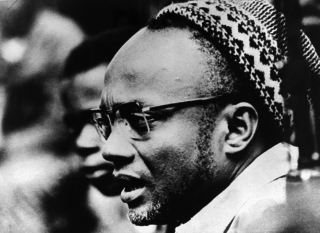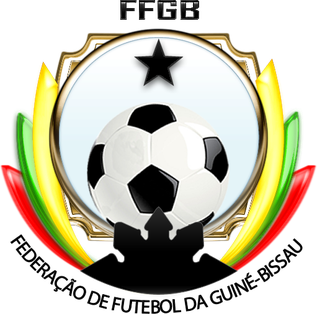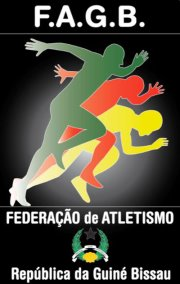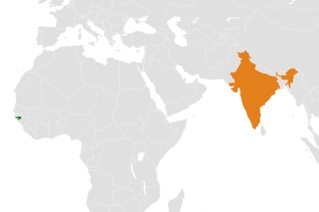
Bissau is the capital city of the African Republic of Guinea-Bissau. In 2015, Bissau had a population of 492,004. Bissau is located on the Geba River estuary, off the Atlantic Ocean, and is Guinea-Bissau's largest city, major port, and its administrative and military centre.

This name uses Portuguese naming customs. The first or maternal family name is da Costa and the second or maternal family name is Cabral.

The Guinea-Bissau War of Independence was an armed independence conflict that took place in Portuguese Guinea between 1963 and 1974. Fought between Portugal and the African Party for the Independence of Guinea and Cape Verde, an armed independence movement backed by Cuba and the Soviet Union, the war is commonly referred to as "Portugal's Vietnam" due to the large numbers of men and amounts of material expended in a long, mostly guerrilla war and the internal political turmoil it created in Portugal. The war ended when Portugal, after the Carnation Revolution of 1974, granted independence to Guinea-Bissau, followed by Cape Verde a year later.

The Guinea-Bissau national football team is the national team of Guinea-Bissau and is controlled by the Football Federation of Guinea-Bissau. They are a member of the Confederation of African Football (CAF).
Articles related to Guinea-Bissau include:

The Football Federation of Guinea-Bissau is the governing body of football in Guinea-Bissau. It was founded in 1974, and affiliated to FIFA and to CAF in 1986. It organizes the national football league and the national team.

The following outline is provided as an overview of and topical guide to Guinea-Bissau:

This is a survey of the postage stamps and postal history of Guinea-Bissau, formerly known as Portuguese Guinea.
The sport of football in the country of Guinea-Bissau is run by the Football Federation of Guinea-Bissau. The association administers the national football team, as well as the national league. Association football (soccer) is the most popular sport in the country. Since the Portuguese navigator Nuno Tristão reached the local coast in 1446, but at the latest since the official foundation of the colony Bissau in 1753, the country was a Portuguese colony, and became officially independent only in 1975. To this day, football in Guinea-Bissau is therefore characterized by its Portuguese origins and relationships, for example through a number of affiliates of the Portuguese clubs Sporting Lisbon and Benfica Lisbon. Also, many Guinea-Bissau footballers play in Portugal.

The Athletics Federation of Guinea-Bissau is the governing body for the sport of athletics in Guinea-Bissau. The current president is Renato Moura.

José Mário Gómes Vaz is the President of Guinea-Bissau, in office since 23 June 2014.
Baciro Candé is a Guinea-Bissauan professional football player and manager.

Guinea-Bissau competed at the 2016 Summer Olympics in Rio de Janeiro, from August 5 to 21, 2016. This was the nation's sixth consecutive appearance at the Summer Olympics.

Guinea-Bissau–India relations refers to the international relations that exist between Guinea-Bissau and India. The Embassy of India in Dakar, Senegal is concurrently accredited to Guinea-Bissau. India opened an Honorary Consulate in Bissau on 28 May 2010. Guinea-Bissau has no diplomatic mission in India.
Media of Guinea-Bissau includes print, radio, television, and the Internet. "The Conselho Nacional de Comunicação Social regulates the press." The government-run Radio Televisao de Guinea-Bissau began in 1973.
The following is a timeline of the history of the city of Bissau, Guinea-Bissau.








